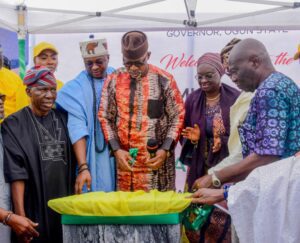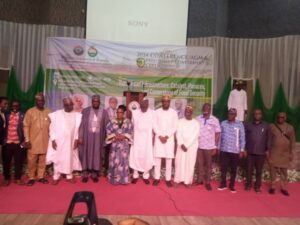
Stakeholders aim to appraise Niger Delta regional devt masterplan
Stakeholders have resolved to review and update the master plan of Niger Delta Regional Development master plan, with clear goals and roles for all stakeholder set out as the under-girding framework.
They also resolved that the Niger Delta Development Commission, (NDDC) should review its projects in order to streamline them, ensure effective funding and completion of critical projects, and terminate contracts that bear no relevance to the Master Plan.
The resolutions are contained in a communique issued at the end of a three-day strategic capacity building workshop/retreat organised by the NDDC for stakeholders drawn from Oil and gas host communities, and Civil Society Organisations, from the nine states of the Niger Delta region, as well as the National Assembly, the presidency, last week in Uyo, Akwa Ibom State capital.
In the communique signed by NDDC management, and made available to journalists on Friday in Uyo, the stakeholders equally resolved that projects handled by the commission in the past have a direct positive impact on the poor masses, such as free medical outreaches, should be revisited and reactivated.
The stakeholders’ further resolved, “That the Commission’s annual budget should be appraised wholistically, to ensure continuous fiscal transparency and accountability. That the Commission should be part of the ongoing review of the NDDC Act by the National Assembly, particularly during its public hearings.
“That the Commission should create a culture of budget realism, by eliminating moribund items, ensuring clarity, harmonisation, stakeholder participation, effective monitoring and evaluation, and post-implementation audits.
“That the NDDC should automate and upgrade all its operations, ensure advanced leveraging on the automation of its Project Monitoring & Supervision (PMS) directorate. Other areas of operations should be progressively automated to enhance effectiveness, improve public dealings with the Commission, including remote access to the status of payments, to promote transparency.
“That the mode of selection of Executive Management of the Commission should be reviewed, with a view to giving greater emphasis to competence and professionalism, and less on political considerations.”
According to the communique, the stakeholders stressed that the roles of NDDC Executive Directors should be properly spelt out in the enabling Act and that the requisite qualification for executive positions should be clearly stated in the Act.
They noted that there was a need for the Commission to improve its communications strategy, and also its interface with the National Assembly, Ministry of Niger Delta Affairs, and state Governors of the region, through regular statutory and, town hall meetings, particularly concerning projects and programmes.
“The Commission should be included in the list of Statutory Protected Boards in the constitution. This will reduce the high Board and Management turnover, as well as the frequent policy changes, with their attendant costs and inefficiencies.
“There should be a halt on foreign scholarships, with a greater focus on local scholarships, which have the potential of reaching a wider spectrum of beneficiaries, in view of the COVID-19 pandemic and its travel restrictions.
The Commission should support tertiary institutions in the region to improve their capacities to impart the necessary knowledge and competencies.
“The Commission’s Empowerment programmes be focused on Entrepreneurship development and recruitment linkages with the organized private sector and government institutions in the region, to create employment and jobs in the region.
“The commission should set up a Regional Development Fund (REDFUND) in partnership with other stakeholders within and outside the Niger Delta Region to support Development Projects and Programmes.
“And while there should be less emphasis on undertaking new projects, owing to budgetary constraints in relation to outstanding obligations and the ongoing forensic audit, the Commission, being the foremost interventionist agency of the region, should continue to intervene to cut the infrastructural deficits, and in other areas of urgent need, such as was done at the height of the COVID-19 pandemic.”



